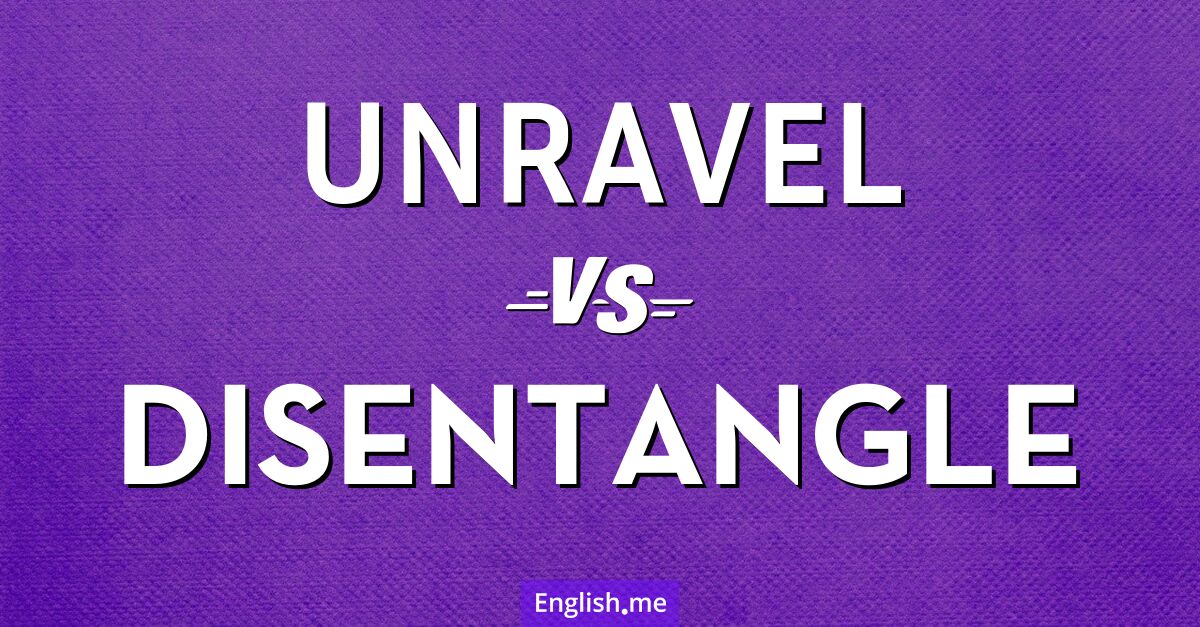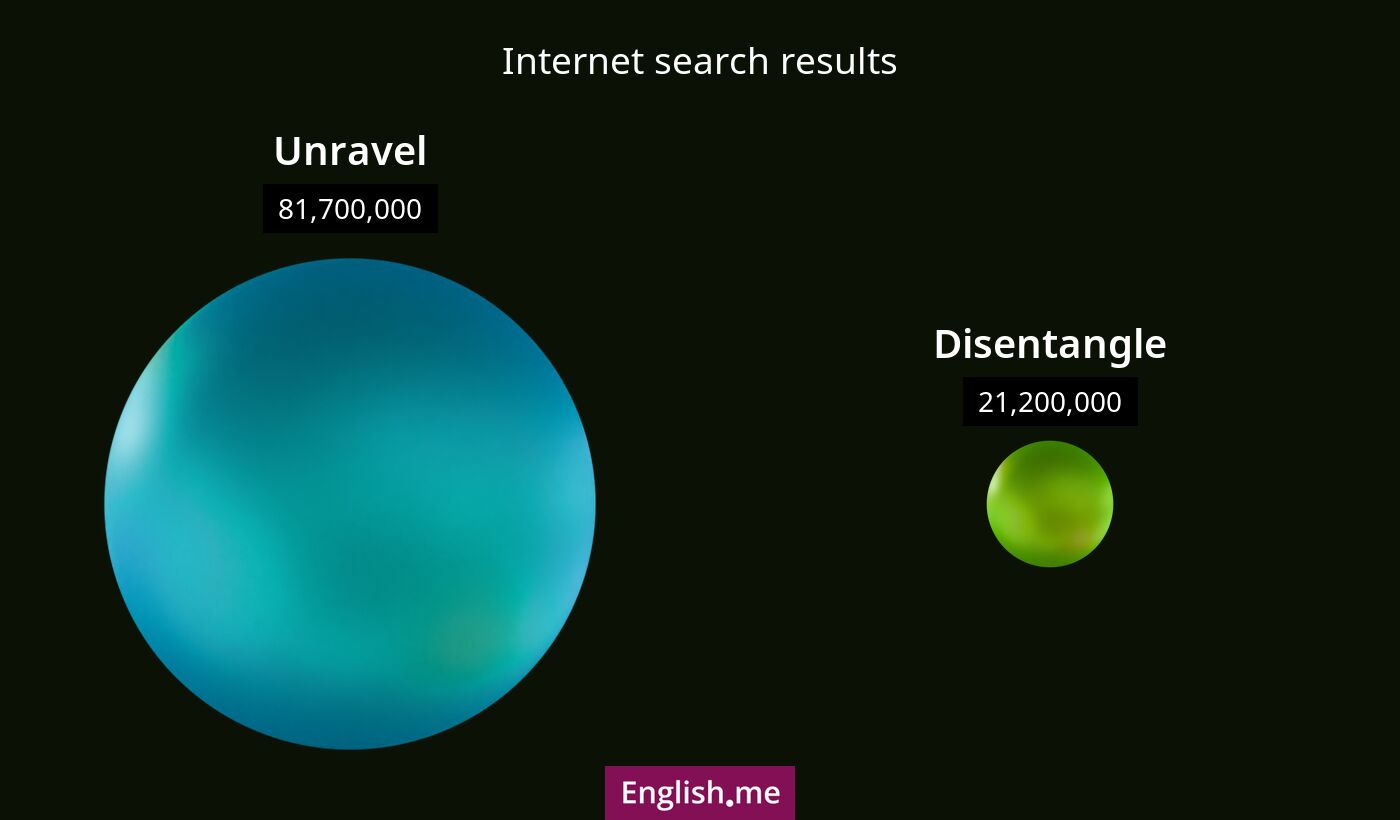"Unravel" vs. "disentangle": threads of meaning

 What is similar?
What is similar?
Both "unravel" and "disentangle" refer to the process of undoing something complex or tangled, whether it's physical like threads or hair, or abstract like problems or mysteries. They can both be used literally and figuratively to describe solving or simplifying something complicated.
 What is different?
What is different?
"Unravel" often implies a process where something comes undone and is frequently associated with threads, knitting, or situations that gradually fall apart. It can also suggest a passive or natural process of becoming untangled. "Disentangle" suggests an active effort to free something from a tangle or complication and is more commonly used for intentional actions to resolve or clarify complex issues. "Unravel" can sometimes carry a negative connotation of disintegration, while "disentangle" focuses on the positive act of clarification or liberation.
 Which one is more common?
Which one is more common?

 Examples of usage
Examples of usage
Unravel- She tried to unravel the mystery behind the ancient artifact.
- The sweater began to unravel after several washes.
- Scientists are working to unravel the secrets of the universe.
- He carefully disentangled his hair from the comb.
- The detective managed to disentangle the web of deceit.
- The climber had to disentangle the ropes before descending.

 English
English español
español française
française italiano
italiano deutsche
deutsche 日本語
日本語 polski
polski česky
česky svenska
svenska Türkçe
Türkçe Nederlands
Nederlands